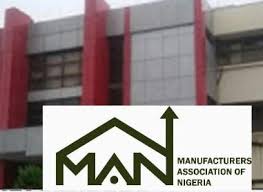 The Manufacturers Association of Nigeria (MAN), said that the production and distribution costs in the manufacturing sector surged by 18.2 per cent in the fourth quarter of last year. Showing the macroeconomic environment’s as a worsening impact on manufacturers.
The Manufacturers Association of Nigeria (MAN), said that the production and distribution costs in the manufacturing sector surged by 18.2 per cent in the fourth quarter of last year. Showing the macroeconomic environment’s as a worsening impact on manufacturers.
Director-General of the Manufacturers Association of Nigeria, Segun Ajayi-Kadir, disclosed this in the Q4 2024 Manufacturers CEO Confidence Index report, made available to news men showing how the industry’s struggles with high costs, policy inconsistencies, and economic instability.
Following the report he states, “The findings show that production and distribution costs surged further by 18.2 per cent in the quarter under review, from the 20.1 per cent increase witnessed in the preceding quarter.”
While the report indicated a slight improvement in sales volume by 1.1 per cent, other key indicators such as capacity utilisation, manufacturing investment, and employment recorded further contractions.
Ajayi-Kadir revealed in the report that capacity utilisation declined by 0.8 per cent in Q4 2024 while manufacturing investment dropped by 1.2 per cent.
Employment in the sector also fell by 0.7 per cent, although the contraction was lower than the 3.5 per cent recorded in Q3 2024.
Ajayi-Kadir also noted that the cost of shipment rose by 11.6 per cent in Q4 2024 from the 17 per cent increase recorded in Q3 2024.
“A close observation of the analysis indicates that only the sales volume recorded a favourable change during the period of review,” MAN’s DG stated. “However, the analysis generally reveals that the adverse effects of the prevailing macroeconomic reforms are diminishing as production and distribution costs, capacity utilisation, volume of production, investment, employment, and cost of shipment recorded lower adverse changes compared to the previous quarter.”
Manufacturers identified high energy costs, forex scarcity, multiple taxation, and poor infrastructure as the biggest threats to their survival.
According to the report, high electricity tariffs and the cost of alternative energy remained a major burden on production.
The manufacturing chief executive officers also flagged the high exchange rate, interest rate hikes, and inconsistent government policies as factors crippling their businesses.
“Manufacturing operations were directly stalled by the lingering effects of high raw material costs, energy, and logistics, as the existence of high exchange rates, interest rates, and inflation rates remain unfavourable to the overall business environment,” the report noted.
Despite the tough conditions, the MCCI inched up by 0.5 points to 50.7 points in Q4 from 50.2 points in Q3, reflecting marginal optimism among industry players.
However, projections for the first quarter of 2025 show a downward trend.
The expected business condition dropped from 56 points to 53.2 points, while the projected employment condition slid to 53 points.
The anticipated production level also fell from 54.3 to 54 points, indicating manufacturers’ fears of further economic downturns.
The report suggested that hopes for stability in exchange rates, a halt in interest rate hikes, lower energy costs, and tax reforms were keeping optimism afloat.
Manufacturers urged the Federal Government to take immediate steps to ease the financial and operational burden on the sector.
Key recommendations include suspending further electricity tariff hikes and reviewing previous increases, pausing interest rate hikes, directing banks to offer manufacturers single-digit loans, and expanding the Bank of Industry’s capital base to improve access to industrial credit.
Ajayi-Kadir also called for the clearing of the outstanding $2.4bn forex forward contract to restore confidence in the currency market, halting the 15 per cent increase in port charges and facilitating the implementation of the National Single Window project to reduce trade costs.
He also recommended fast-tracking tax reforms and establishing a more transparent exchange rate mechanism for customs duties.
MAN’s DG emphasised that addressing these challenges would stabilise the manufacturing sector, boost production, and drive economic growth.
“Nigerian manufacturing is on its last breath. The future of the country will continue to hang in the balance unless the plight of manufacturers is adequately addressed with appropriate interventions,” he warned.
MAN’s MCCI is an index to measure changes in the quarterly pulse of manufacturing activities concerning movement in the macroeconomy and government policies. It has a baseline of 50 points, suggesting a stationary point in the economy.
When the MCCI rises above 50 points, it shows manufacturers have increasing confidence in the economy, and when it drops below 50, it signifies otherwise.








 The Manufacturers Association of Nigeria (MAN), said that the production and distribution costs in the manufacturing sector surged by 18.2 per cent in the fourth quarter of last year. Showing the macroeconomic environment’s as a worsening impact on manufacturers.
The Manufacturers Association of Nigeria (MAN), said that the production and distribution costs in the manufacturing sector surged by 18.2 per cent in the fourth quarter of last year. Showing the macroeconomic environment’s as a worsening impact on manufacturers.